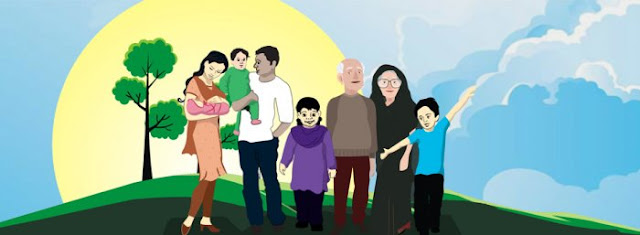Valentine’s Day: A day celebrated to
express your love to the respective girlfriend or boyfriend with gifts,
chocolates, an outing trip or date, to make her/him feel special. But
have we ever considered the true meaning of love. The so called LOVE
that we speak about, is it really real or just a release of some
hormones? Is it love or a mental sickness? Let’s find out…
Helen Fisher of Rutgers University in the States has proposed 3
stages of love – lust, attraction and attachment. Each stage might be
driven by different hormones and chemicals.
The first stage of this great emotion is ‘Lust’ which is driven by the sex hormones testosterone and estrogen- in men and women.
The second stage is ‘
Attraction’. This is the time when you’d be
called “love struck”, being unable to think about anything else but your
special one. Scientists believe, there are 3 main neurotransmitters
involved in this stage- adrenaline, dopamine and serotonin.
The first hormone- adrenaline- is basically a stress hormone causing responses like racing heart, sweating palms and dry mouth.
Secondly, Dopamine, which a “pleasure”
hormone, stimulating ‘desire
and reward’ function of the brain. This is a similar effect caused when
you take drugs. The less need for sleep or food and yet an exciting and
delighted mood- is a result of this hormone, secreted when you are in
‘Love’.
Finally, Serotonin- which causes the special one to dwell around your thoughts, all the time.
Dr. Donatella Marazziti, a psychiatrist at the university of Pisa,
Italy, wanted to study further about it. In her study, she chose 20
couples who had been madly in love for 6 months to see if their brain
mechanism of the constant thought about the lover, were similar to that
of Obsessive Compulsive Disorder (OCD). And her doubts were confirmed,
when the results showed, the serotonin level of the new lovers were
similar to that of the OCD patients.
This ultimately, certifies, that falling in love is a mental illness,
as per the researches. Perhaps, that’s why people in love tend to
believe that no feelings on earth is deeper than the feelings of love.
Psychologists, however, believe that the reaction is necessary, if we have to step to the next level, which is ‘Attachment’.
Attachment is the bond that keeps couples together long enough for
them to have and raise children. And the hormones involved in this case
are: oxytocin and vasopressin.
The post coital hormone
Oxytocin- is the hormone responsible to
deepen the bond between the spouse. This hormone also helps to
strengthen the bond between the mother and her baby, and is also
released during child birth.
In a research done by Diane Witt, the assistant professor of
psychology from New York, it was found that when the natural release of
oxytocin was blocked in sheep and rats, they rejected their own
children.
And likewise, injecting the hormone in the female rats who never had
sex, caused them to love the young of another female, caring and
protecting them as if they were their own.
Vasopressin is another important hormone in the long-term commitment
stage and is released after sex. In a research performed on voles, it
was found that by suppressing the effect of vasopressin in them, the
bond with their respective partners deteriorated immediately, as they
lost their devotion and failed to protect their partner from other
suitors.
Actually, the whole process of love is a set of physical and chemical
reactions in the body than anything great or exquisite. These overall
thing is merely a means of preserving the bloodline, the ancestry.






